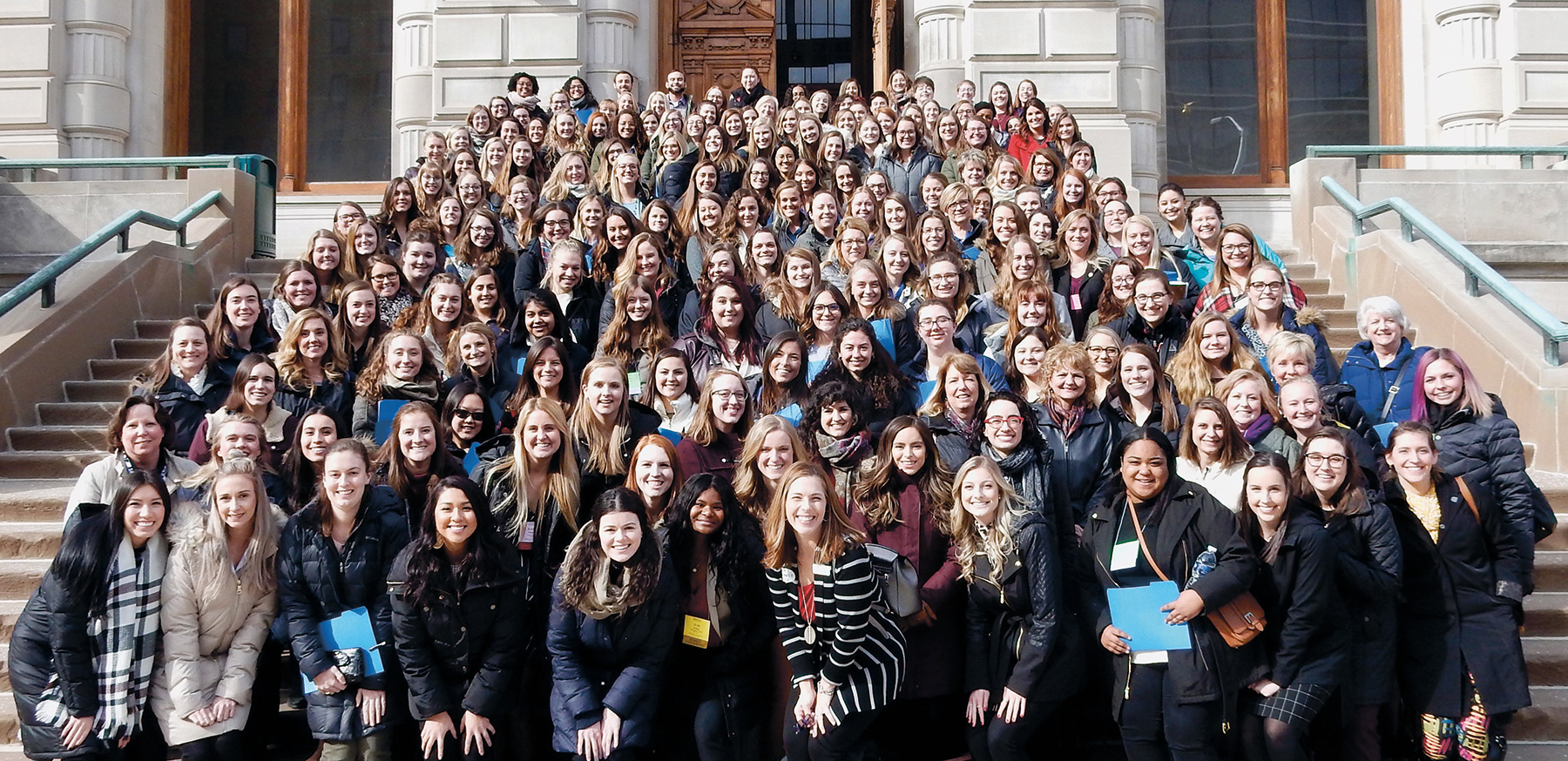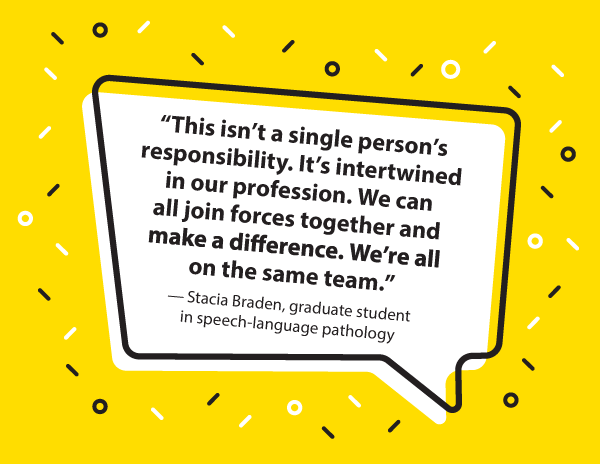Speak Up
Students in Speech, Language, and Hearing Sciences take advocacy to the state
Story by Brian Wallheimer
Students in the Department of Speech, Language, and Hearing Sciences get the same message from mentors and professors throughout their college years: Advocate for your patients.
It’s an important lesson, but one that many students can’t wrap their minds around while they spend much of their time in classrooms and may be years away from working with patients.
“We’re always talking about advocating for our patients and their rights. But it’s kind of an abstract idea,” says Katy Hopping (BS ’17), a second-year Doctor of Audiology student. “We talk about how we have the knowledge and expertise, but talking in class isn’t going to get anything done.”
So students like Hopping started talking outside of class — specifically to fellow students and then to state legislators. What started as a small group of Purdue students taking advocacy outside the classroom has grown into hundreds of voices speaking out on behalf of their fields and their future patients.
The spark came from Dawn Wetzel, a clinical associate professor in speech, language, and hearing sciences. A few years ago, she was asked to speak to an Indiana State Senate committee on an issue related to her field and she saw the need for more passionate voices to educate legislators. Those voices, she realized, could come from students already active on campus.
 Photo provided
Photo provided
“I started appreciating the impact they could make as grassroots advocates,” Wetzel says. “They can make a difference.”
Wetzel and the Indiana Speech-Language-Hearing Association organized a Legislative Day in Indianapolis in 2017. After seeing Purdue students talking to legislators at the event, she was determined to build on their enthusiasm and organized the Purdue SLHS Student Advocacy Council. That group took the reins for student involvement at future legislative events.
One of the first things the students had to tackle was simply educating legislators about what speech-language pathologists and audiologists are and the populations they serve.
“Students clearly understand the populations our professions treat, the specific services we provide, and the impact we make, and they may assume everyone else does as well,” Wetzel says. “They are amazed when they talk to a legislator and that person has no idea what we do.”
That experience — having the ears of state policymakers — was empowering for students, many of whom had observed the legislative process only through news sound bites from elected officials they had never met.
“They’re wanting us to give them information so they can make the best decisions possible,” says Stacia Braden, a second-year master’s degree student in speech-language pathology. “Just knowing them on a personal level, having the time to talk to them at an event, was so powerful.”
At the 2019 Legislative Day, students took positions on four bills, including proposed laws pertaining to the amount of training required to be a school speech-language pathologist, funding for hearing aids for children, and the removal of state licensure for hearing aid dealers. They’re the types of issues that state government deals with every year.

“Before joining the Student Advocacy Council, I had no idea what type of legislation was out there, how to find out or who my state legislators are,” Hopping says. “Being on this council has educated me so much.”
Legislators also heard from more than just Purdue students on these issues. That’s because a significant part of the Purdue SLHS Advocacy Council’s work has been to rally students at all seven of the communication sciences and disorders programs at colleges and universities throughout Indiana.
“This isn’t a single person’s responsibility. It’s intertwined in our profession,” Braden says. “We can all join forces and make a difference. We’re all on the same team.”
During the 2017 Legislative Day, 46 students participated. But thanks to Purdue student efforts, there were 167 students in 2018 and 220 this year.
“I’m incredibly grateful for the students of Purdue because they did a phenomenal job of reaching out to students statewide and encouraging participation,” says Susan Latham, president of the Indiana Speech-Language-Hearing Association. “Hopefully what happens is that students use these experiences to become leaders, sustaining this after they graduate and become professionals.”
Wetzel and Purdue’s students are confident that the advocacy will keep up. That’s because in the first year, Wetzel had to recruit students to the SLHS Advocacy Council and now the demand has grown so much that students have to apply for membership.
“This has been a great way to be familiarized with advocating for myself as a professional and for my clients when I’m in the field,” says Jasmine Anguiano, a first-year master’s degree student in speech-language pathology. “This program has given me the skills to be comfortable with advocating. If there were a bill on another of these topics or any other topic that I feel strongly about, I would be able to approach my legislator now.
“I think I can make an impact.”

